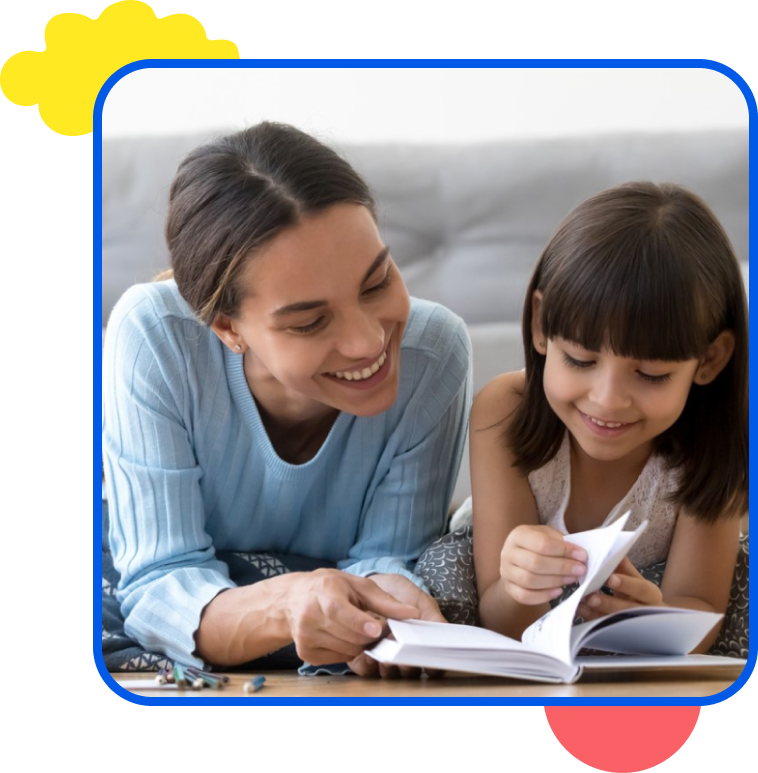What Is Bilingual Education? What Parents Need to Know



As parents, we all want what’s best for our children. We want them to thrive, succeed, and be prepared for the future. One way to give your child a competitive edge in our increasingly globalized world is through bilingual education. But what is bilingual education exactly?
Bilingual education is a means of instruction in two languages at the same time using a specialized school curriculum. Still, bilingual education is about more than just learning two languages.
There’s also more than one way to teach bilingual education. The most common methods include dual language programs, transitional bilingual education, and language maintenance programs.
In this blog post, we’ll go over the pros and cons of bilingual education as well as what types of programs exist. We’ll also provide guidance for parents who want to raise a bilingual child.
Let’s begin!
What Is Bilingual Education?
Bilingual education is an educational approach that uses two languages as the medium of instruction. The goal is to help students become proficient in both languages while also mastering academic content.
While this approach may sound new to some, it has actually been around for centuries, dating back to ancient civilizations that recognized the importance of learning multiple languages.
Over time, bilingual education has evolved, with a focus on meeting the needs of diverse populations, such as immigrants and indigenous communities. Its purpose has remained the same, though: to provide students with a high-quality education that prepares them for success in a multilingual and multicultural world.
In today’s world, the importance of bilingual education cannot be overstated. With globalization and the increasing interconnectedness of cultures, bilingualism is becoming more valuable in various fields, from business to diplomacy.
Types of Bilingual Education Programs
Bilingual education is typically offered by a specialized academic institution equipped to instruct various subjects in two or more languages. These types of programs are structured in a way where they split the teaching in the two languages throughout the day.
There are several types of bilingual education programs available, each with its unique approach and benefits. Here are a few of the most common types:
Dual Language Immersion
A dual language education program teaches students both languages simultaneously, to achieve bilingualism and biliteracy. In a typical dual language program, students spend half their day learning in one language (e.g., English) and the other half in another (e.g., Spanish). This approach has been shown to promote not only language development but also academic achievement and cross-cultural understanding.
Transitional Bilingual Education
Also known as early-exit bilingual education, transitional bilingual education programs help non-native speakers of English transition to English-only classrooms as quickly as possible. In a transitional bilingual education program, students receive instruction in their native language for a limited amount of time (usually one to three years) while also receiving instruction in English. The goal is to help students develop English proficiency while maintaining their native language skills.
Maintenance Bilingual Education
Also known as late-exit bilingual education, maintenance bilingual education programs help students maintain their native language skills while also developing English proficiency. In a maintenance bilingual education program, students receive instruction in both languages for an extended period (usually five to seven years or more). The goal is to ensure that students become truly bilingual and biliterate, with strong skills in their native language and English.
Each type of bilingual education program has its unique strengths and benefits, and the choice of program will depend on a variety of factors, including the needs of the student, the goals of the program, and the resources available. As a parent, it’s essential to research the options available and choose the one that best meets your child’s needs.
Overcoming Obstacles: Finding Bilingual Education Programs Near You
Finding a school that offers one of the bilingual programs listed above is one of the easiest ways to create a consistent bilingual environment for your child. However, finding a bilingual school may be a bit difficult, depending on where you live.
Another way to give your child a bilingual education is by speaking in a minority language at home, homeschooling with an age-appropriate curriculum in the minority language, watching educational movies, having external bilingual classes to encourage further interaction, and so on.
This at-home approach requires a blend of face-to-face school and homeschooling due to the level of curriculum needed. Although this may be a more rigorous route, it is still a very effective way to raise a bilingual child.
Either way, there are pros and cons to bilingual programs.
Pros of Bilingual Education
1. Improved brain functioning and memory
Some scientists believe that learning two or more languages improves and strengthens various parts of the brain. Adopting multiple languages allows your brain to recognize patterns quickly and draw connections. This improves your mental state and learning capability in multiple ways. As the brain strengthens, thanks to a foreign language, it gets stronger overall.
Think of your brain as a muscle. If you run, your legs get stronger, and you get faster. As a result, you are overall in better shape; your breathing improves, your ability to perform cardio improves, your abdominals strengthen, etc. It’s like a domino effect — each muscle has an impact on the next. This is true with the muscles and capabilities of your brain as well.
2. Better career opportunities
As the career world is increasingly more competitive, the ability to speak multiple languages will be a great advantage when looking for a job.
Speaking multiple languages and having the ability to perform your job in two or more languages can dramatically improve your chances of landing a job in the future.
Especially if your child could be interested in working for an international firm, a second language may even be required. Not only can a foreign language be valuable for landing a job, but it can also be beneficial to seeing a salary increase.
3. It creates an opportunity for early diversity
Children are not concerned with societal issues like adults are. The average child is most concerned with making friends, playing games, and having fun. Exposure to foreign languages and cultures means that children will be aware that more than one way of life exists.
Because of this, children who speak multiple languages have an easier opportunity to celebrate and enjoy cultural differences instead of shying away from them. This is an attitude that they will learn to embrace throughout their lives.
4. Easier to participate in exchange programs
If your child attends a bilingual school, chances are there will be opportunities to study abroad and participate in an exchange program. Even at a monolingual school, public or private, there may also be opportunities for a foreign exchange program, but the spots for the trip are generally limited.
In bigger schools, there are only a certain number of places, but many interested children. When it comes down to it, the details matter. Speaking a second language will be an advantage over the rest of the crowd.
Many undergraduate courses are only taught in one language at the university level. By choosing to study abroad in a country where you speak the native language, your child will be eligible for scholarships and an authentic experience in the host country.
If you ever want to prepare your child for the opportunity to study abroad, whether in a small group, at the high school level, or the university level, bilingual education is a great way to start.
5. Beneficial for your travels
Being bilingual is a huge advantage when it comes to traveling. If you go to a place where you speak the native language, the locals will generally be a bit more friendly.
By speaking the local language, you already show interest in their culture, so the people automatically feel appreciated and more understood.
It’s an exciting time to chat with locals about their favorite places to visit in their country, where to find the best food, the coolest local events, and advice for what not to do while you’re visiting.
6. It’s easier for a child to learn a second language
Learning one foreign language can be a difficult task, but learning two or more languages simultaneously can be even more difficult. However, children’s brains are at their peak capacity for learning and develop the quickest when they are young. Exposure to a foreign language at an early stage in life will help children absorb complex information more easily.
While adults learning a second language may feel pressured to speak perfectly or feel embarrassed due to accents and making mistakes, children are the opposite. When children learn any language, they will make mistakes and easily learn from them.
Children generally feel less pressure to perform when learning a second language and do not experience the same type of embarrassment when making a mistake.
7. Learning one new language makes it easier to learn more
Once children begin learning a second language, the language development part of their brain strengthens.
Their brain can recognize patterns in more than one way. Sentence structures, vocabulary, subject-verb agreement, etc., are just a few patterns that children will have to pick up on to learn a second language.
If your child wants to learn a third language in the future, starting with a second language will make this a faster process. Once their brain has adapted to this type of learning, it makes it much easier to go through the process again.
Cons of Bilingual Education
1. Learning specific content can be extremely difficult
Although childhood is the best time for younger children to learn a new language, they can experience second-language difficulties starting off.
When things are new, they are especially difficult. New concepts in a new language can bring stress to young students who just want to communicate with their friends, teachers, and peers.
2. Education in a second language can be inconsistent
If you live in an area that has a school offering bilingual education, chances are that that school has an age limit.
Some bilingual schools are for kindergarten, elementary, and middle school but do not have a high school program. And on the reverse side, some schools only offer bilingual programs to high schoolers.
As a result, children may lose some of their foreign language skills. Although bilingual programs can be a great advantage, if your child never uses their second language after finishing a certain school level, they might forget it.
3. A bilingual education is not cheap
Foreign language programs usually are not the cheapest form of education available.
Due to budget cuts, arts and language programs are disappearing across the country. Many schools have to focus on a monolingual curriculum unless the state mandates a second language.
On top of that, any extracurricular language learning activities will most likely come at some expense. Although the benefits of bilingual education make it worth it in the end, it’s important to consider the costs at the beginning.
4. There may be a lack of qualified teachers and assistants
For a bilingual classroom to succeed, it has to provide children with quality exposure to the target language. High quality of exposure can usually only be found in teachers and teaching assistants who are fully fluent in both languages and have adequate teaching experience.
Although it could be an excellent opportunity for a non-fluent teacher or teaching assistant to improve their language skills, it would not necessarily be a fully immersive experience for the students enrolled in the class. The demand for quality teachers around the nation is always high, and finding quality teachers at a monolingual school is difficult enough.
5. Bilingual education can shift a student’s focus
In standard bilingual classrooms, language learning is split roughly 50/50 throughout the day. If a child has trouble learning and using their second language, they can fall behind in other subjects or lose interest in learning the language.
Although this isn’t too common, the only way to improve the minority language is through practice. More practice requires more time focusing on the language and less time focusing on other extracurricular activities throughout the day like art, music, sports, workshop, etc.
If a child feels like they are missing out on “fun” activities throughout the day, they might have a shift in their focus. They may focus negatively on what they are missing out on instead of on what they can gain with more practice.
6. It prevents student involvement in local culture
If a young child is learning two cultures and languages at the same time, they may have a hard time “fitting in” with people who don’t have the same cultural background.
Of course, making friends in class will be easy. Still, there may be a culture gap with monolingual children simply because they have different routines, communication styles, and ways of processing information. This is a unique extreme but can be an isolating situation for children who are adjusting to people who only have one language and one culture.
7. It comes with preconceived ideas
Bilingualism and learning about other cultures can be associated with a touchy subject: immigration. Some communities have a negative view of the structure of bilingual schools. Some see it as a way that immigrants can avoid adapting to the national language and culture.
This is undoubtedly a challenge that shouldn’t heavily impact your decision to enroll your child in a bilingual education program. There is no way to please everyone in any circumstance, and bilingual education, although highly beneficial, is no different.
Final Thoughts: Why Bilingual Education Is Important
For the next generation, speaking multiple languages will be a highly sought-after skill and may even be considered more of a standard. As learning a language is much easier for children, it makes sense to enroll in a bilingual education program from an early age – just be sure to continue bilingual education efforts outside of and after school.
Want to help your child become bilingual from home? Sign them up for a free trial for an online language class with LingoCircle! We offer dual language programs, elementary school curriculums, and CEFR programs in French, Spanish, English, Chinese, Arabic, and Korean. Certified, native-speaking teachers lead each class for children ages 3-15.


Simple Ways to Learn a Second Language at Home
Get resources and tips to help supplement your bilingual education journey at home.
By providing your email you are signing up to receive emails from Bilingual Bebe. Privacy Policy






